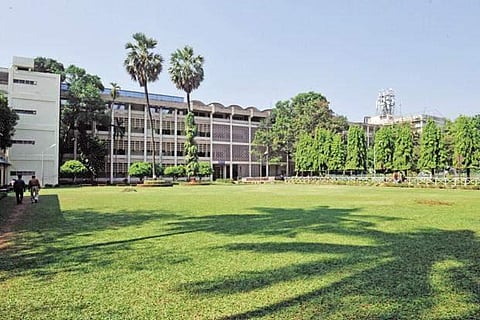

Tragedy has struck the Indian Institute of Technology (IIT) Bombay once again, as another Dalit student died by suicide. On the fateful day of February 12, Sunday, Darshan Solanki, took his own life after allegedly jumping from the hostel building on campus. The death has sparked discussions and outrage around the need for a more inclusive and safe space for marginalised students on campus. The Ambedkar Periyar Phule Study Circle (APPSC), IIT Bombay alleged that the incident is a case of "institutional murder."
According to reports, Solanki, 18, was a first-year B Tech student. The police are investigating the case and recording statements from Solanki's roommates to determine the motive.
"We have been raising the issue of having a Dalit counsellor for years now, someone who is more caste aware, but the institution has failed its students time and time again in that regard," said Pranav Jeevan, an APPSC cell member. He continues, "The institute is not supporting its students and is enabling discrimination. When counsellors themselves are against reservation, how can you expect a Dalit student to turn to them for help?"
The Director of IIT Bombay expressed his sorrow and regret through a mail sent out to students and faculty, stating, "We regret to inform the loss of a first-year student in a tragic incident this afternoon. Powai police are investigating the case. The parents of the student have been informed and they are on their way. We deeply mourn the death of the student and pray that the family gets the strength to bear this loss. May his soul rest in peace." Later another mail was sent out which identified the deceased student by name and other details.
"The first mail just mentioned the loss and refused to even identify the human loss in this incident," says Pranav, adding, "It is only after the candlelight march that the other message was forwarded to the students, identifying the student and providing further details."
In addition to the lack of a Dalit counsellor, the APPSC cell has also spoken out about the lack of representation in the faculty and the delay in the formation of the SC/ST cell. "The SC/ST cell only began functioning in 2022 despite demands for its establishment since 2014. Further, the cell has no mandate yet. We have drafted the document, but the institute is not ratifying it," said Pranav.
The death of Solanki has shed light on the struggles that marginalised students, particularly those in their first year, face on campus. "It is particularly difficult for students in the first year, who are new on campus and the academic pressure is also more. Additionally, the effects of discrimination and casteist harassment that marginalised students face make matters worse for them," concludes Pranav.
(If you are having suicidal thoughts, or are worried about a friend or need emotional support, someone is always there to listen. Call Sneha Foundation - 04424640050 (available 24x7) or iCall, the Tata Institute of Social Sciences' helpline - 02225521111, which is available Monday to Saturday from 8 am to 10 pm.)
(This story first appeared in Edexlive)